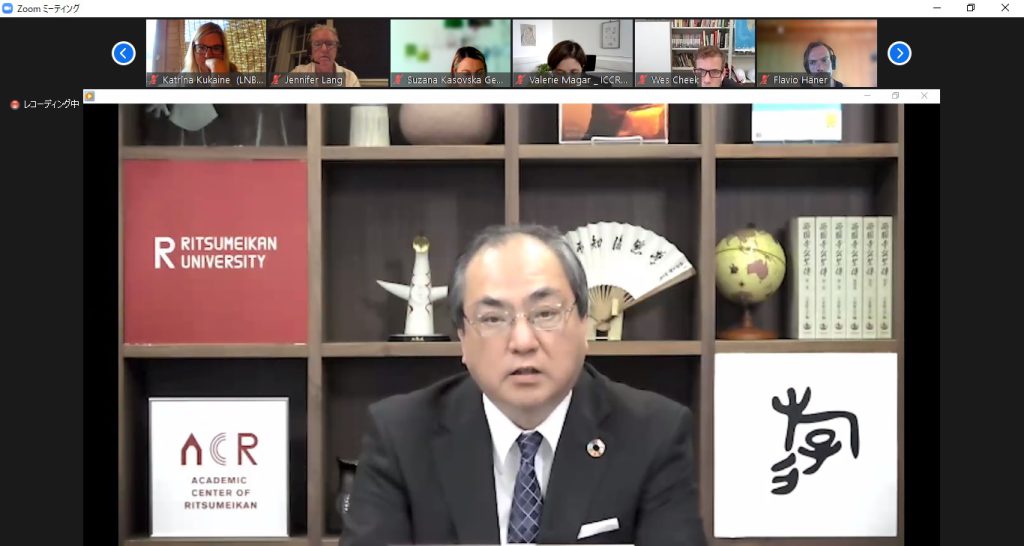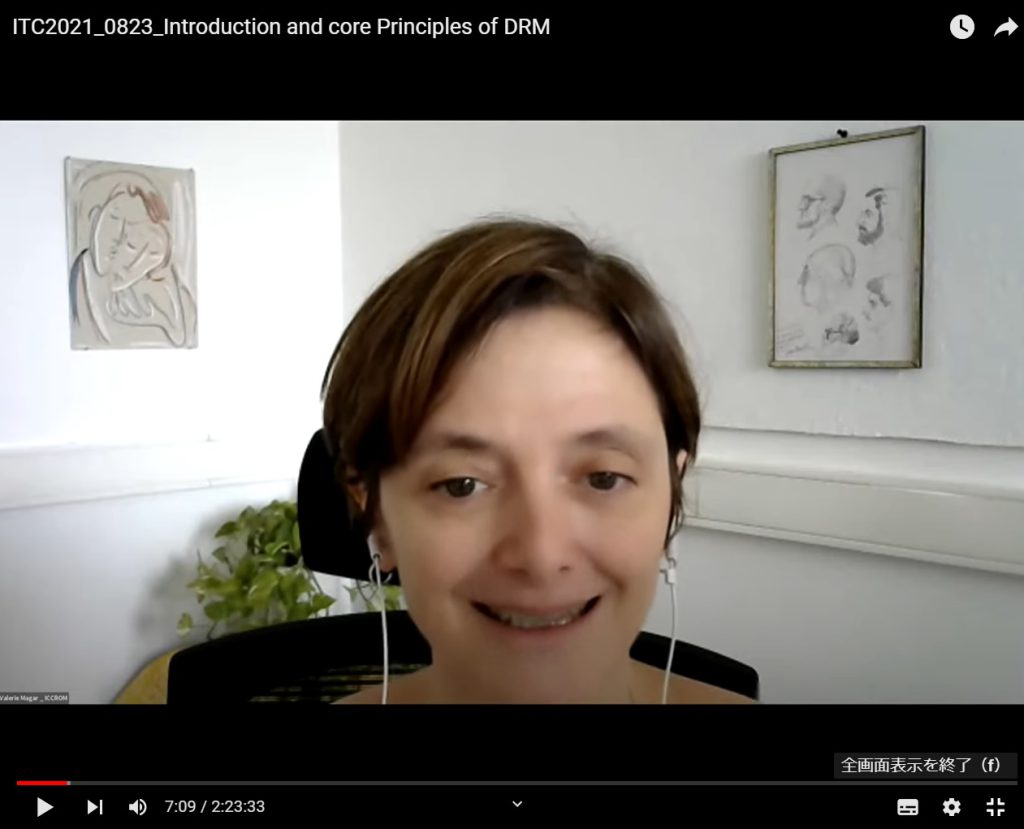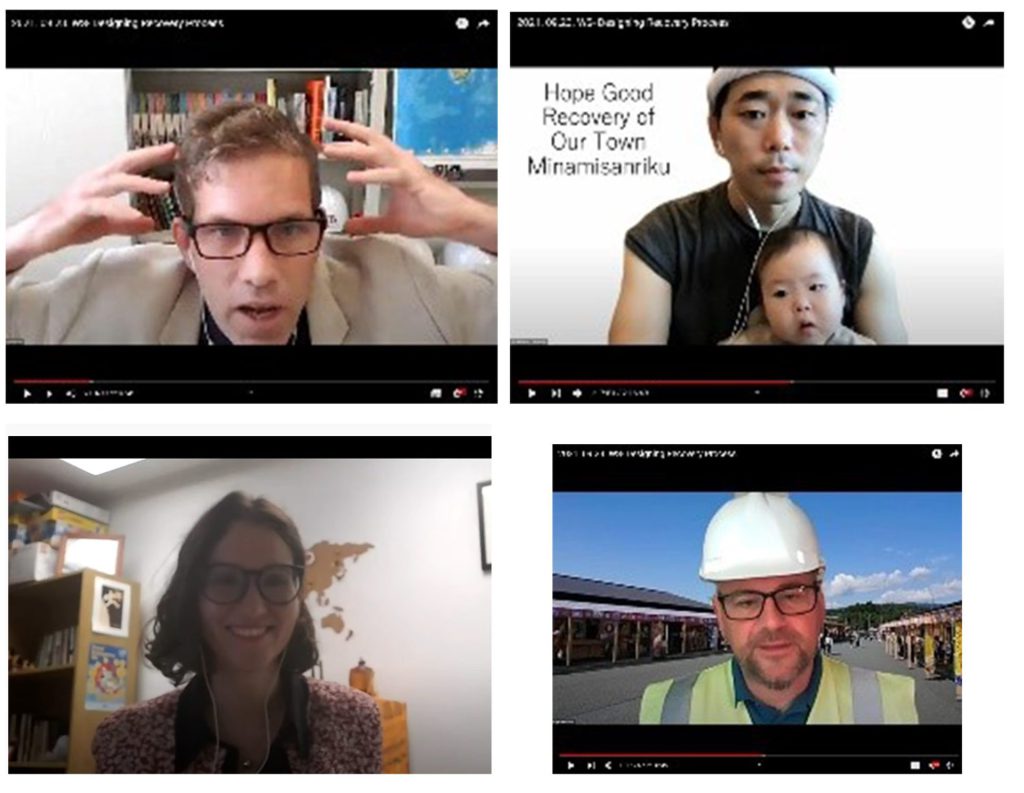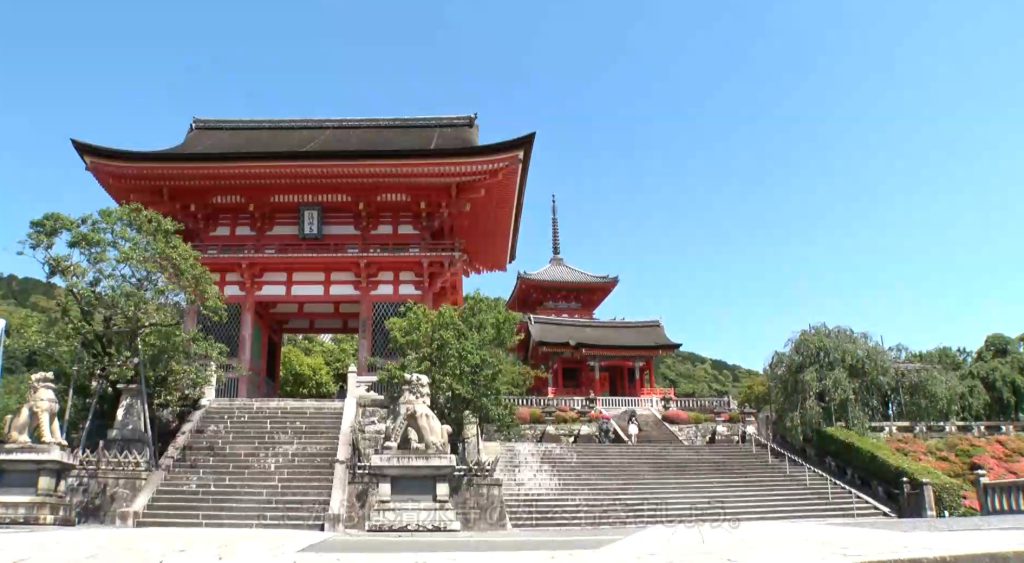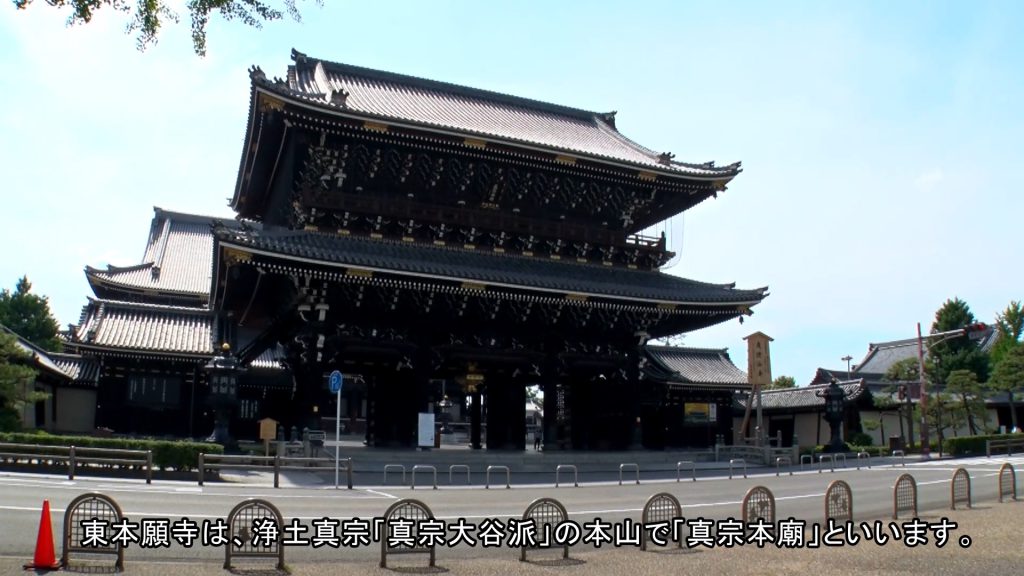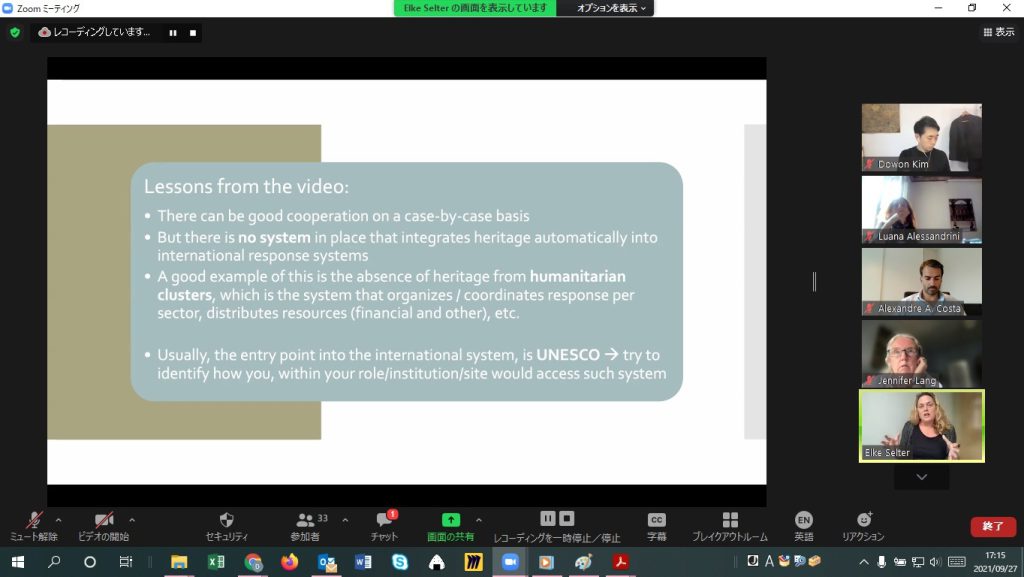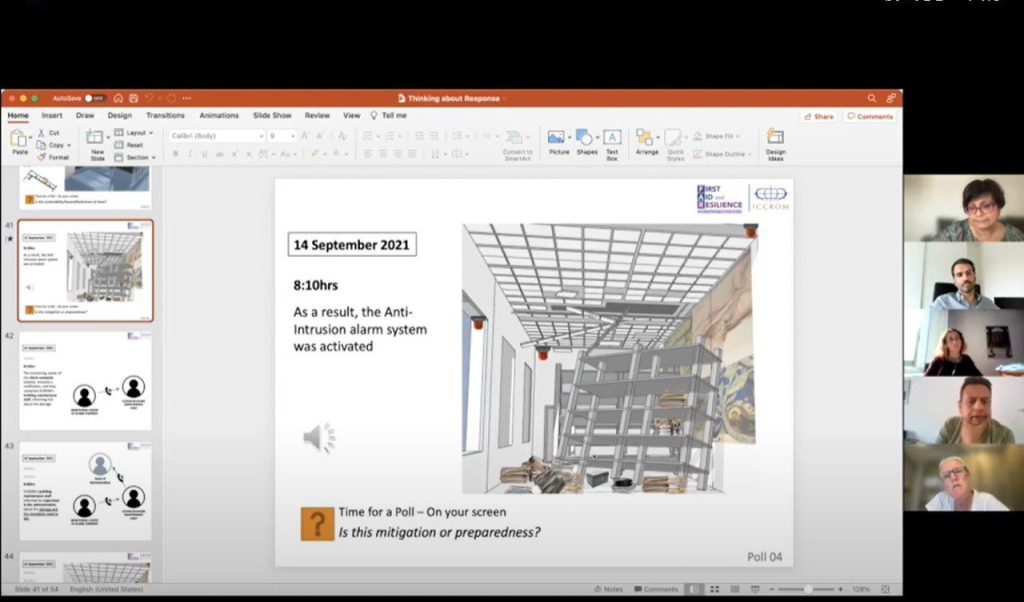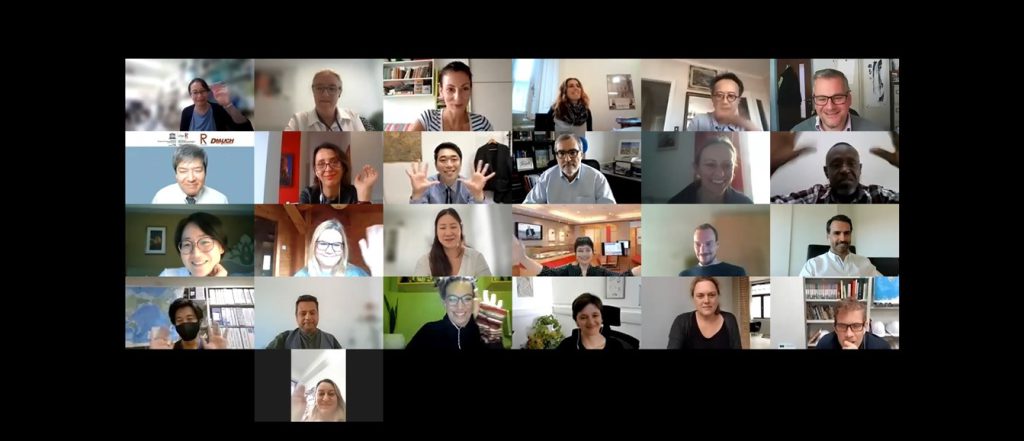UNESCO Chair Programme on Cultural Heritage and Risk Management INTERNATIONAL TRAINING COURSE (ITC) on DISASTER RISK MANAGEMENT of CULTURAL HERITAGE 2021 from 23th August to 7th October 2021, at Kyoto, Japan
Organized by Institute of Disaster Mitigation for Urban Cultural Heritage, Ritsumeikan University
In collaboration with ICCROM
Contributed by UNESCO, ICOM & ICOMOS/ICORP
ITC 2021, the 15th year
The UNESCO Chair Programme on Cultural Heritage and Risk Management – 15th INTERNATIONAL TRAINING COURSE (ITC) on DISASTER RISK MANAGEMENT of CULTURAL HERITAGE 2021 was successfully held for seven weeks from 23th of August to 7th October 2021. This year’s course had thirteen participants and two observers. These participants and observers came from Colombia, Croatia, Egypt, Japan, Kenya, Kosovo, Latvia, North Macedonia, Philippines, Portugal, Switzerland , United States of America, and Italy. They were selected through a competitive selection process which had 124 applicants from various regions of the world. This years’ participants had diverse backgrounds, including cultural heritage managers, disaster risk management experts, decision makers, and government officials involved in cultural heritage conservation and disaster management.
There were lectures from faculty members of Ritsumeikan University and members of ICCROM. Experts from institutions such as the Agency for Cultural Affair, Kyoto City Fire Department, Kyoto National Museum and faculty members of Miyagi University, Kyoto Tachibana University, and Loughborough University also gave lectures, conducted workshops, and provided critical knowledge and guidance. During the course, the trainees gained a deepened understanding of various aspects of disaster risk management of cultural heritage. This year featured examples of best practices and innovative initiatives in Japan as well as particular issues and lessons learned from the field of cultural heritage conservation and disaster risk management in other nations.
This year the theme of ITC was Disaster Risk Management of Cultural Heritage: Learning from the Japanese Experiences. The course focused on experiences in Japan and how those relate to the institutional structure and legal framework as well as the implementation and practical efforts. These examples span the government level, community-based disaster mitigation efforts by neighborhood associations, and disaster response to recovery and reconstruction planning. In addition to this year’s focus on examples from Japan, the course included a number of international experts to understand various perspectives and to develop a comprehensive understanding of disaster mitigation methods and approaches.
It was challenging for us to prepare to conduct fieldwork through given the COVID-19 pandemic. Site visits have always been an important part of our course. With the cooperation of the heritage site owners and the local community in the city of Kyoto, we created alternative video tours of local sites. Our video Ponto-Cho showed how a local neighborhood approaches disaster preparedness and evacuation in a traditional townscape in Kyoto. At Kiyomizu Temple we were able to show countermeasures against floods, landslides, and fires in wooden cultural properties on steep hillsides. At Higashi Hongan-ji we viewed the fire prevention measures for large wooden buildings, including high technologies such as sprinklers, drenchers.
The live sessions for ITC were held twice a week for two hours each. We set a theme for each week, with lectures and discussions on the first day, and related workshops on the second day of every week. Pre-recorded lectures were provided before the live sessions. Additionally, we conducted mentoring/feedback sessions where participants could have time to discuss what they had learned that week with core lecturers and develop their individual case study projects. Through these sessions, participants were able to advance their pilot projects. The final outcomes of the participant’s work will be published in proceedings at the end of this fiscal year.
We, the UNESCO Chair Programme on Cultural Heritage and Risk Management, will continue these outreach activities and the dissemination of our research outcomes to the international community.
